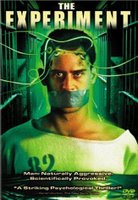plain talk
My boss, who's French, told me she has trouble understanding my English: it is too complicated, she said. Actually, I told her, I think it's too simple.
I've been consciously moving away from Latinate, academic language toward more basic, plain speaking, relying more on Anglo-Saxon words. Maybe that's the problem. Something I read in Bill Bryson's Mother Tongue might explain the problem. After Scandinavians and Normans conquered England (or Angleterre, as it's called in French), only about 4,500 of these Old English words survived.
I've been consciously moving away from Latinate, academic language toward more basic, plain speaking, relying more on Anglo-Saxon words. Maybe that's the problem. Something I read in Bill Bryson's Mother Tongue might explain the problem. After Scandinavians and Normans conquered England (or Angleterre, as it's called in French), only about 4,500 of these Old English words survived.
And yet those surviving words are among the most fundamental words in English: man, wife, child, brother, sister, live, fight, love, drink, sleep, eat, house, and so on. They also include most of the short 'function' words of the language: to, for, but, and, at, in, on, and so forth. As a result, at least half the words in almost any sample of modern English writing will be of Anglo-Saxon origin. According to another study cited by McCrum, every one of the 100 most common words in English is Anglo-Saxon. To this day we have an almost instinctive preference for the older Anglo-Saxon phrases.So basically, the easier a person's English is to understand for native English speakers, the harder it is for native French speakers. No wonder there's a cultural divide.













0 Comments:
Post a Comment
<< Home